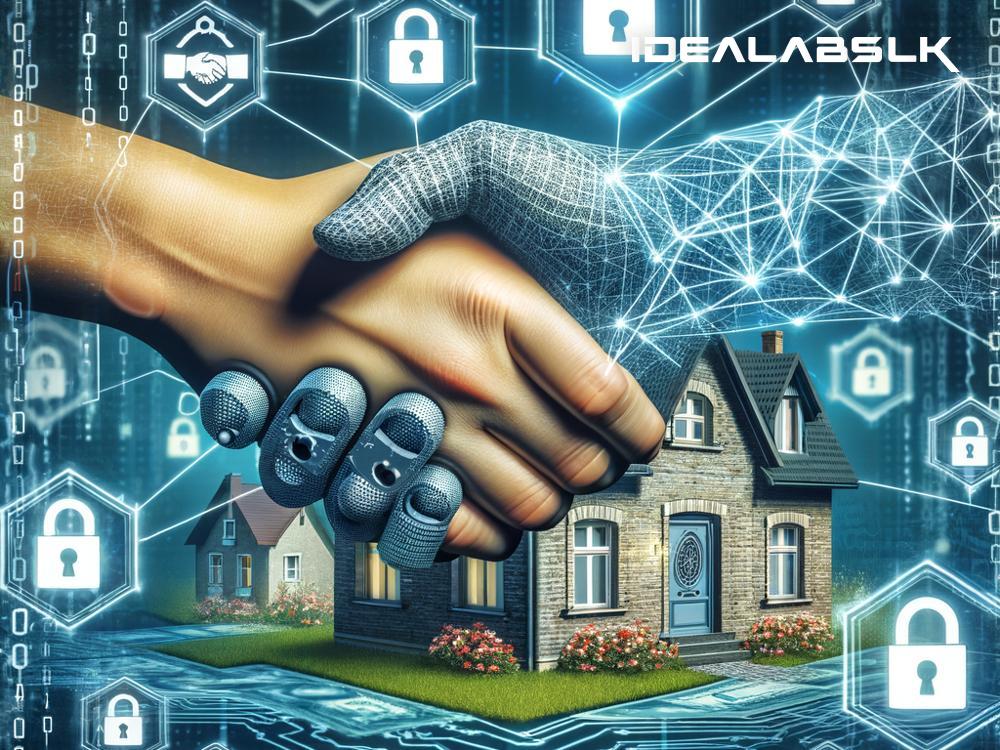Unlocking a New Era in Property Transactions: How Blockchain is Revolutionizing Real Estate
The world of real estate is on the brink of a major transformation, thanks to a groundbreaking technology known as blockchain. Long associated with cryptocurrencies like Bitcoin, blockchain is now making waves in various industries, including real estate. This decentralized ledger system is setting the stage for more secure, transparent, and efficient property transactions. Let's dive into the fascinating world of blockchain in real estate and discover how it's paving the way for decentralized platforms that promise to reshape the way we buy and sell properties.
The Basics of Blockchain
To begin with, blockchain is essentially a digital ledger that safely records transactions across many computers. What makes it stand out is its decentralization; no single entity controls the ledger, making it incredibly secure and transparent. Each transaction added to the chain is verified and encrypted, creating a permanent record that's nearly impossible to tamper with. This trait is especially appealing in real estate, where the stakes are high and transparency is paramount.
The Challenges of Traditional Real Estate Transactions
Real estate transactions have always been complex, often involving numerous parties, vast paperwork, and a lengthy process. From title searches to escrow services, each step adds time and cost, not to mention the risk of errors and fraud. The lack of transparency can also lead to disputes, further complicating matters. It's clear that the traditional system is ripe for an overhaul, and blockchain technology holds the key.
How Blockchain is Transforming Real Estate
Blockchain introduces several innovations to real estate, addressing longstanding issues and streamlining the transaction process. Here's how:
-
Enhanced Security and Transparency: With blockchain, every transaction is recorded and easily verifiable, reducing the risk of fraud. This level of transparency builds trust among parties, a crucial factor in real estate dealings.
-
Efficient Transactions: By eliminating intermediaries like banks and lawyers, blockchain can significantly reduce transaction times and costs. Smart contracts—self-executing contracts with the terms directly written into code—automate and enforce agreements, further simplifying the process.
-
Improved Record Keeping: Blockchain can create immutable records for property titles, avoiding the loss and forgery issues that plague paper documents. This can make title searches faster and less expensive.
-
Global Access and Liquidity: Blockchain platforms can connect buyers and sellers worldwide, expanding the market and potentially increasing property liquidity. It also opens doors for new financing models, such as fractional ownership, where investors can buy shares of a property.
Decentralized Platforms: The Future of Property Deals
At the heart of blockchain's impact on real estate are decentralized platforms. These platforms offer a secure and user-friendly environment for conducting real estate transactions without the need for centralized control. Here's what these platforms mean for the future of property deals:
-
Peer-to-Peer Transactions: Buyers and sellers can interact directly, reducing reliance on agents and other middlemen. This can make real estate more accessible and affordable for more people.
-
Tokenization of Assets: Properties can be represented as digital tokens on the blockchain, making it easier to buy, sell, and trade shares in real estate assets. This can democratize real estate investing, allowing more people to participate with smaller amounts of capital.
-
Global Marketplaces: Decentralized platforms can facilitate cross-border transactions, enabling people from different countries to easily buy and sell properties. This global marketplace can increase opportunities for buyers and sellers alike.
Challenges and the Road Ahead
Despite its potential, blockchain in real estate is not without challenges. Regulatory hurdles, technological complexities, and the need for widespread adoption stand in the way. However, as technology advances and more stakeholders recognize blockchain's benefits, these obstacles are likely to diminish.
In conclusion, blockchain technology is set to revolutionize the real estate industry, offering a more secure, efficient, and transparent way to conduct property transactions. Decentralized platforms are at the forefront of this transformation, promising a future where property deals are more accessible and streamlined than ever before. As we move forward, the integration of blockchain into real estate could well redefine our concept of property ownership and investment, making it a fascinating space to watch.

